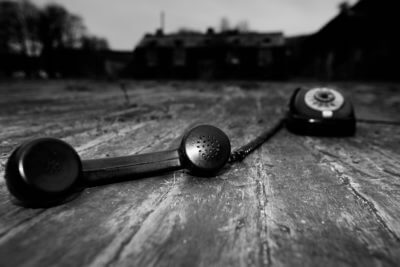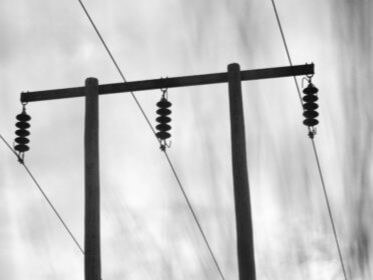Podcasts: Hearing the Voice Lecture Series
This podcast features Professor Corinne Saunders (Department of English Studies, Durham University) on ‘Otherworldly Encounters: Voices and Visions in the Medieval Period.’ It was recorded on 18 February 2017 as part of the public symposium on ‘Voices, Visions & Divine Inspiration‘ – an event linked to the Hearing Voices: suffering, inspiration and the everyday exhibition.
Abstract: God is in some ways the ultimate uncertainty, since God has no material trace which gives certain evidence of presence. The great achievement of the cognitive science of religion has been to demonstrate that evolved, “natural” qualities of our minds readily generate intuitions about supernatural agency. Yet it is also true that Christians also report that faith is hard: that it takes effort, and that this effort arises from the uncertainty of God’s presence. This talk makes the case that people find evidence of God’s presence in mental events; that different practices of attending to mental events shape mental experience; that different cultures and different theologies emphasize mind and mental process in distinctive ways, and that this has consequences for the way people experience God. In this lecture, Professor Tanya Luhrmann compares the experience of hearing God speak among charismatic Christians in Accra, Chennai and the Bay Area in the United States, and find that God’s voice is recognized differently and experienced differently in these theologically similar but culturally different settings.
This public lecture was recorded on 16 February 2017 as part of the Hearing Voices: suffering, inspiration and the everyday exhibition at Palace Green Library.
Abstract: In this lecture, Professor Patricia Waugh will examine some of the current therapeutic approaches to trauma, depression and distressing voices that draw on current cognitive and neuroscience research on memory, including cognitive methods for memory restructuring and reconsolidation and more associative and imagistic methods of controlled exposure that draw on theories of different memory pathways. In particular, she will look at the now widespread and effective use in therapy for trauma and depression of EMDR (eye movement, de-sensitisation, and reprocessing) first developed in the early 1990s. The lecture will go on to explore how Virginia Woolf’s fascination with her own memory and creative processes, her interest in the new somatic aesthetics of Roger Fry and reflections on creative thinking of writers such as Graham Wallas, the early ideas of the new rhythmanalysis that would be named as such by Gaston Bachelard in 1935, the influential writings of Pierre Janet on dissociation, trance and memory reconstruction, allowed her gradually to cultivate and manage an approach to her own creative process that also gave her unique insight into the workings of memory, creativity and trauma that are only now being understood in similar terms by researchers in the cognitive sciences and psychiatry. Woolf dismissed the numerous distinguished physicians and neurologists appointed to ‘cure’ her perceived ‘neurasthenia’ or hereditary madness or manic-depression; she used her enforced periods of ‘rest cure’ to mind-wander and become therapist to herself, in the process also reshaping negative beliefs about her own identity as a woman into a political framework that became the basis for modern feminism.
Woolf’s varied and voluminous writings provide fascinating and unique insights into how an ongoing experiment in and minute reflection on memory- based practices of creativity not only produced some of the most formally innovative poetic writing of the last century, but also genuine epistemological insights into the working of memory, creative processing and trauma therapeutics and a robust political platform for a feminist identity politics that would resonate through the twentieth century.
This public lecture was recorded on 21 January 2017 at the Literary Minds symposium, which featured as part of our linked programme of events surrounding the Hearing Voices: suffering, inspiration, and the everyday exhibition.
Abstract: In this podcast, Rachel Waddingham (Chair of Intervoice) outlines her vision for the future. The talk was recorded at ‘Voice-hearing: what does the future hold?‘, which took place in the Wolfson Gallery at Durham’s Palace Green Library on 5 November 2016.
Abstract: Recorded on 7 July 2016 at a Hearing the Voice workshop on Hallucination and Prediction, this podcast features Dr Ben Alderson-Day on an introduction to the predictive processing framework for understanding hearing voices and other unusual experiences.
Abstract: Christian mysticism embraces a diverse range of religious experiences. For William James, ineffability was one of the hallmarks of mystical experience and it has often been the case that such experiences have neither involved the hearing of a voice, nor have they been easily conveyed in words. Despite this, the literature is rich with examples of written accounts of mystical experience, and many such experiences are reported as having included the hearing of a voice. In this seminar, Chris Cook considers a series of such examples, illustrating some of the different ways in which voices contribute significantly to, and interpret, mystical experience.
Abstract: In this talk, Sam Warner demonstrates how visions, voices and dissociated parts sometimes develop in response to the overwhelming trauma of child sexual abuse. She explores how splitting parts off in these ways helps people to mentally survive the trauma of abuse, but can also cause additional stress, which may undermine their recovery. This is particularly the case when services view visions, voices and dissociated parts as symptoms of mental disorder, rather than as meaningful and potentially helpful starting points for recovery. Drawing on her work with children and adults who hear voices, see visions and experience different identities, she demonstrates how victims of childhood sexual abuse can be supported to use their visions, voices and dissociated parts to understand abuse-trauma and to provide direction for recovery.
Abstract: What is it to provide an explanation of something? In this seminar, Sam will explore different accounts of what an explanation is, and present his own preferred account, which he calls interrogative pragmatism. Against the backdrop of this account of explanation, Sam will elaborate an account of what makes something not merely an explanation, but also a more powerful explanation than a potential competitor. In other words, he will give an account of explanatory power. Finally, Sam will apply this to psychiatry in general, and voice hearing in particular, and illustrate instances of some explanations being more powerful than others.
Abstract: A dominant psychological model of voice-hearing holds that it involves a disturbance to the process by which inner speech—our ordinary internal dialogue—is attributed to the self. Accounting for the phenomenological richness and varied pragmatics of voice-hearing requires, however, an equally nuanced conception of the functional and structural heterogeneity of the ordinary voices in our heads. Professor Fernyhough reviews some key recent findings on voice-hearing and inner speech, and explores their implications for three main areas of enquiry: the paradox of the apparent ubiquity of inner speech, the value of reading some forms of voice-hearing as inner dialogue rather than as atypical communicative acts, and the dynamic interaction in voice-hearing of inner speech and memory.
Abstract: From Defoe onwards, novelists have been fascinated by hearing the voice and, indeed, many novelists have written autobiographically about their own voice hearing experiences. Foregrounding the functional role and the nature of voice in narrative fiction, Professor Patricia Waugh explores how experiment with voice, from Daniel Defoe to David Foster Wallace, has been a major source of the novel’s capacity to generate new insights into human existential and socio-cognitive capacities.
Abstract: Several meta-analyses have suggested that cognitive behaviour therapy (CBT) for psychosis has small to moderate effects on positive symptoms (e.g., auditory hallucinations and delusions). However, a recent meta-analysis reported that these effect sizes are substantially inflated because of methodological problems in many trials of CBT for psychosis. In this talk, Dr Smailes focuses on CBT for voice-hearing and suggests that one reason for its limited effectiveness is that current interventions tend to treat voice-hearing as a relatively homogenous experience, despite evidence that voice-hearing is highly heterogeneous. These heterogeneous experiences do, however, appear to cluster into a set of subtypes, and it is possible that CBT for voice-hearing may be more effective if it is tailored to the subtype that a voice-hearer reports. Dr Smailes describes a novel CBT for voice-hearing manual that Hearing the Voice has developed in collaboration with a local clinical psychologist, which encourages clinicians to tailor CBT to subtypes of voice-hearing, and discusses the promise and limitations of this kind of approach.
Abstract: Auditory verbal hallucinations (AVH) or ‘hearing voices’ are often described as being characterful or having their own persona. This, along with reports of voices that lack auditory characteristics but retain “presence”, has led some authors to argue that AVH may be primarily be experienced as social actors or agents, rather than simply hallucinated sounds. In this talk, Dr Alderson-Day reviews such claims and considers how existing cognitive theories of AVH may accommodate the presence of social or agent-like representations, focusing on inner speech, memory, and predictive processing accounts. He argues that the “social presence” of voices can be accommodated by existing models, but only via better recognition of how social interaction shapes ordinary speech perception and inner speech processes. Implications for understanding AVH experiences, how they develop, and how they may be managed when distressing are discussed.
Abstract: Antipsychotic drugs are usually the first line of treatment for psychosis, and clinical guidelines report clear benefits in terms of symptom reduction. Nevertheless many patients are dissatisfied with pharmacological treatment with 74% of patients choosing to discontinue their drugs over 18 month. Evidence is also emerging that suggests that the effectiveness of these drugs has been overestimated, whereas the severity of their adverse effects has been underestimated. Despite this no genuine treatment choice exists beyond medication. This presentation reports on the first research trial to treat psychosis without medication: a randomised controlled trial of Cognitive Behavioural Therapy for those with psychosis refusing to take antipsychotics. It will consider whether treatment of psychosis without medication might be a possibility.
Abstract: Interactions between the social sciences and neurosciences are increasingly hard to avoid these days – both in institutions committed to ‘interdisciplinary’ engagements between these domains, and in often worried accounts from the field. However, this paper proposes a new way of understanding, and interacting with, these developments. Starting from the position that contemporary opportunities for collaboration between social scientists and neuroscientists need to be taken seriously, this paper asks how we are to imagine and theorize these emerging possibilities. It argues that the first step in this imaginary act must be to set ourselves against a bloodless and sterile rhetoric of ‘interdisciplinarity, ’and to instead pursue a much more bold and risky sense of what an experimental approach can look like in this space. The paper analyses existing frameworks for understanding the dynamics between the social- and neuro-sciences, and argues that these (whether enthusiastic or horrified) all take place within ‘the régime of the inter-’, a subterranean frame that interprets interaction ‘between’ disciplines on the basis of their fundamental separateness. The paper argues that, contra this régime, it is no longer practicable or desirable to maintain a hygienic separation between sociocultural webs and neurobiological architecture, whose entanglements remain indifferent to disciplinary ethos and history. But more importantly, it suggests that the cognitive neuroscientific experiment, as a rich space of epistemological and ontological excess, offers a still-mostly-uncharted space for researchers, from all disciplines, to understand, explore and register the outcomes of this realization. This podcast was recorded at a Hearing the Voice Research Seminar in the Birley Room at Hatfield College at Durham University on Thursday 8 May 2014, 5.15 pm – 7.15 pm.
Alastair Morgan: ‘Is Psychiatry Dying? The contemporary legitimation crisis in psychiatry’
Does psychiatry know what it is for, does it have a role in the future and does it have a clear idea of its conceptual foundations ? Should we care if psychiatry withers away, and dissolves into a range of new disciplines, such as neuroscience, the science of wellbeing, or the pragmatic management of life issues in the name of mental health recovery? In this lecture to the Durham University and Tyne, Esk and Wear Valleys NHS Foundation Trust Joint Special Interest Group in Psychosis (JSIGP) , Dr Alastair Morgan (Sheffield Hallam University) considers new and competing ‘paradigms’ for the ontological status of psychiatry and critical psychiatry, and attempts to map a direction for the future of psychiatry in the 21st century. Slides to accompany this podcast, which was recorded on 26 March 2014, are available to download here.
Hilary Powell: ‘Picturing Thought: Voices, visions and demonic encounters in the Early Middle Ages’
This podcast features Dr Hilary Powell on ‘Picturing Thought: Voices, Visions and Demonic Encounters in the Early Middle Ages‘ and was recorded at a Hearing the Voice Research seminar at Hatfield College, Durham University on 13 March 2014. As part of the introduction to her lecture, Hilary refers to the ‘waterworks drawing’ from the Eadwine Psalter, which presents a bird’s eye view of the twelfth century hydraulic system that provided Canterbury Cathedral and its monastic buildings with water. For more information and a link to the image, please click here.
Vaughan Bell: ‘A Community of One: Social cognition and auditory verbal hallucinations’
Dr Vaughan Bell (Institute of Psychiatry, King’s College London) gives a guest lecture on the social dimensions of voice-hearing at Voice Club on 8 November 2013. This talk is based on his paper ‘A Community of One: Social Cognition and Auditory Verbal Hallucinations‘, PLOS Biology.
Ben Alderson-Day: ‘The Stuff of Voices: mapping the clinical, neural and cognitive correlates of different types of inner speech’ Our postdoctoral research associate in psychology, Dr Ben Alderson-Day, summarizes the research he did on inner speech during 2013. This lecture was presented at the Hearing the Voice Research Showcase and Futures Meeting at Grey College, Durham University on 11 September 2013.
Angela Woods: ‘Entanglements with Humanities and Social Sciences: minds and bodies’
Our project co-director Dr Angela Woods gives an introduction to Hearing the Voice to a largely clinical audience at the Royal College of General Practitioners Medical Humanities Research Day in London on 14 March 2013.
David Napthine, John Foxwell and Guido Furci: ‘Writing on Air (Part 1)’
Listen to David Napthine, John Foxwell and Guido Furci explore the intersection of literary and cognitive studies, and learn more about our research into writers’ inner voices.
Ben Alderson-Day and Jade Peters discuss talking to yourself, personification, the ‘anorexic voice’, and how the project draws on interdisciplinary perspectives and lived experience to develop our understanding of this experience. Chris Cook, Corinne Saunders and Hilary Powell consider the literary, historical and religious context of voice-hearing.
Mary Robson, Angela Woods, Charles Fernyhough, Pete Moseley, Ben Alderson-Day and Sam Wilkinson: ‘Writing on Air (Part 3)’
Featuring Mary Robson, Angela Woods, Charles Fernyhough, Pete Moseley, Ben Alderson-Day and Sam Wilkinson, the final instalment provides an interdisciplinary feast, exploring how the field of medical humanities has changed our approach to voice-hearing, and what might be happening in the brain when someone hears voices.



